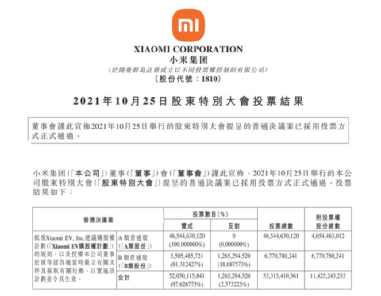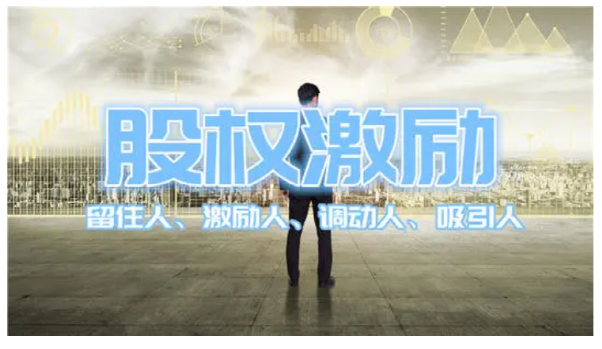On the evening of October 25th, Xiaomi Auto released an announcement stating that its equity incentive plan has been approved by the shareholders’ meeting, and up to 1 billion shares will be used for internal employee incentive projects in order to encourage talent to work for the company’s long-term value. For Xiaomi Auto, which has invested 10 billion RMB in the first phase and plans to invest 10 billion USD in ten years, equity incentives have become an important card for attracting top talents from both domestic and foreign markets.
Coincidentally, whether it is new forces such as NIO, XPeng, and Ideal, or traditional car companies such as SAIC, Geely, Great Wall, and GAC, they all have their own employee equity incentive plans. The salary model of combining salary and equity, which was once popular in internet companies, is now emerging in domestic car companies.

Equity incentives – killing two birds with one stone
From the perspective of the company, using equity as part of the salary package can reduce the fixed monthly salary burden to some extent. For many new forces that have not yet achieved profitability, this part of the cost is a significant expense. On the other hand, through equity incentive methods, because the exercise of equity rights often has a relatively long period, not only can it reduce the turnover rate of core employees, but it can also enhance employees’ sense of ownership, enabling them to better serve the company.

The internal processes of auto companies are very complex, especially for many new forces that have incomplete internal functional construction in the early stage. In these cases, equity incentives can effectively stimulate employees’ sense of ownership and willingness to take initiative, thereby promoting the company’s sustained development. Therefore, for many enterprises, especially for many emerging companies, equity incentives are an essential internal incentive measure. Actually, around 2010, traditional car companies such as SAIC Volkswagen, SAIC GM, and FAW-Volkswagen, gave monthly double or even triple salaries as compensation to encourage internal staff to work harder and help enterprises sell more vehicles. Equity incentives can be regarded as an upgraded version of double or triple salary plans, enabling employees to transform from workers to company shareholders.
Is equity incentive really attractive?
In the past, companies like NIO Motors provided their employees with the opportunity to purchase equity at low or even no cost prior to going public. Once the company went public and employees met certain conditions, they were able to exercise their options and receive substantial income. Particularly in 2020, with the listing of NIO Motors in North America and the Federal Reserve’s quantitative easing policy leading to new highs in US stock prices, employees holding company stock at that time made significant profits, some even achieving financial freedom. Other brands such as Xiaomi Auto, Jidu Auto, and GAC Aion, as long as their IPO is successful, these stocks will become important sources of income for their employees in the secondary market.
For companies that are already listed on the main board, such as SAIC, Great Wall Motor, GAC Group, and Geely, their equity incentive plans are a real reward. These companies are more likely to use equity incentives to prevent executives and core employees from being poached by emerging new players in the car industry. With a limited number of executive positions within the company, linking employee income with company benefits through the award of equity is the most welcome approach for management. However, for traditional automakers with large scale, these equity incentives are often divided among a relatively small proportion of high-ranking executives and core employees, and are not very beneficial for the majority of low- and middle-level employees.
It should be noted that for ordinary employees, equity only has value when it can be traded. The difficulty of successfully taking a company public is increasing. Previously, NIO Motors chose the US securities market to go public, which had a lower threshold than going public in China, and also had Tesla as a valuation anchor for investors to reference. However, with increasing competition between China and the United States, particularly in the high-tech sector, the road for Chinese enterprises to go public in the US is becoming increasingly blocked. Even in China, it is difficult to go public on the main board, let alone the science and technology innovation board. The failures of Geely and WM Motor in competing for the Sci-Tech Innovation Board serve as a cautionary tale.
Therefore, the difficulty for new automakers in China to successfully IPO is increasing. This also means that the difficulty of realizing the value of equity in the hands of employees is also increasing. This is a situation that workers who have chosen a salary structure of cash + equity need to consider.In recent years, Wei Xiaoli, XPeng Motors, and Jidu Auto have become the representative companies among the newly emerging domestic car companies with their impressive performance. However, as the saying goes, success comes with countless failures. The success of these companies means that many other emerging car companies have already fallen before launching their cars. Take LeEco Auto, which was once very popular, for example, its stock equity is now difficult to cash in.
The salary of the vast majority of positions in China has long been an open secret, especially since a large number of traditional car company engineers have joined the emerging car companies. Precise HR managers are aware of the salaries of employees of all job levels and years of experience, just like a clear mirror. Therefore, besides appropriate salary increases, equity has become the biggest bargaining chip for employees. However, as mentioned above, equity is always on paper, and it is only when it is truly settled that it becomes one’s own wealth.
This article is a translation by ChatGPT of a Chinese report from 42HOW. If you have any questions about it, please email bd@42how.com.
